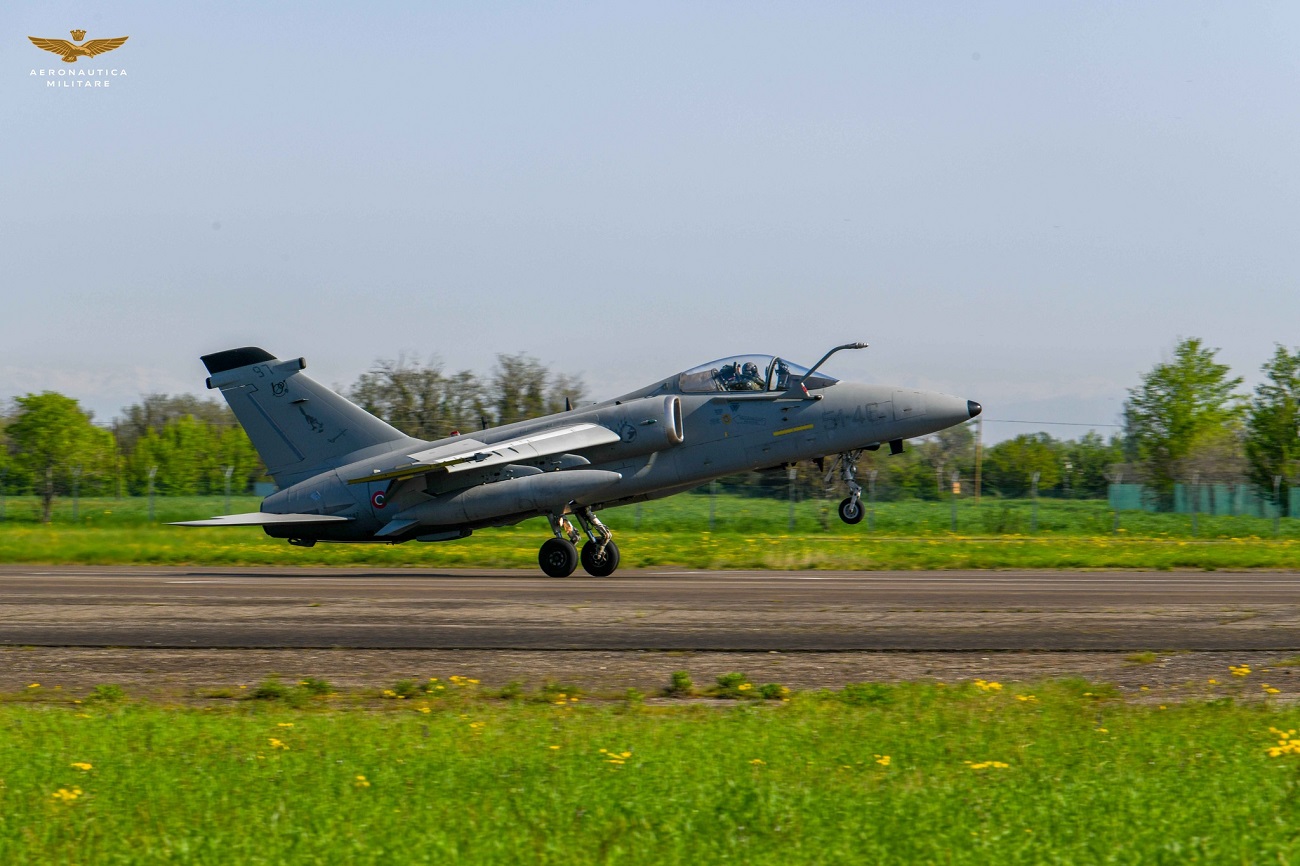After three and a half decades of steadfast service, the Italian Air Force has officially retired its Aeritalia Macchi eXperimental (AMX) ground-attack aircraft. The last of the single-engined jets that Italy co-developed with Brazil in the 1980s and 1990s were withdrawn from operational service during a ceremony on 5 April. The final four AMX fighters still in operation were gracefully decommissioned, taking off from the 51st Stormo and touching down at the Piacenza Airport Detachment in a poignant conclusion to their illustrious career. The last of 136 examples of the type ordered by the service were being operated by the 51st Wing, 132nd Fighter Bomber Reconnaissance Squadron at Istrana military airport.
Their retirement marks the end of an era, but also heralds the beginning of a new chapter as they join the ranks of historic flying artifacts at the Piacenza Airport Detachment. This collection was recently augmented by the arrival of Grazzanise’s HH-212 helicopters, which were retired after over four decades of service in Italy and beyond. The ceremony not only commemorated the service and sacrifice of the AMX fleet but also provided an opportunity to unveil the Flying Museum project. This initiative will offer enthusiasts of aviation and historians alike the chance to witness these iconic aircraft in flight that have shaped the rich tapestry of the Armed Forces’ century-long legacy.

The AMX International AMX is a ground-attack aircraft jointly developed by Brazil and Italy. The AMX is designated A-11 Ghibli by the Italian Air Force and A-1 by the Brazilian Air Force. The Italian name, “Ghibli”, is taken from the hot dry wind of the Libyan desert. During the early 1970s, Aermacchi conducted a design study on a prospective light ground attack aircraft, which was given the designation of MB-340. During 1980, the Brazilian government announced that they intended to participate in the program in order to provide a replacement for the Aermacchi MB-326. As a result of a memorandum between Italy and Brazil for the type’s joint development in 1981, AMX International, an Italian-Brazilian joint venture, was formed to develop, manufacture, and market the aircraft.
Various munitions could be mounted on the one centerline and four under-wing hardpoints, including bombs, missiles and rockets; payloads of up to 2,000 lb may be carried upon the centerline and the two innermost under-wing pylons, while the outer pylons can carry up to 1,000 lb. All four of the under-wing hardpoints are plumbed for drop tanks to extend the aircraft’s range, Italian aircraft are also fitted with a fixed aerial refueling probe.[11] Optical reconnaissance pods can be carried externally on the centerline hardpoint. Wingtip rails are provided for infrared guided air-to-air missiles such as the AIM-9 Sidewinder and MAA-1 Piranha. Italian aircraft are fitted with a M61 Vulcan 20 mm rotary cannon on the port side of the lower fuselage.
















